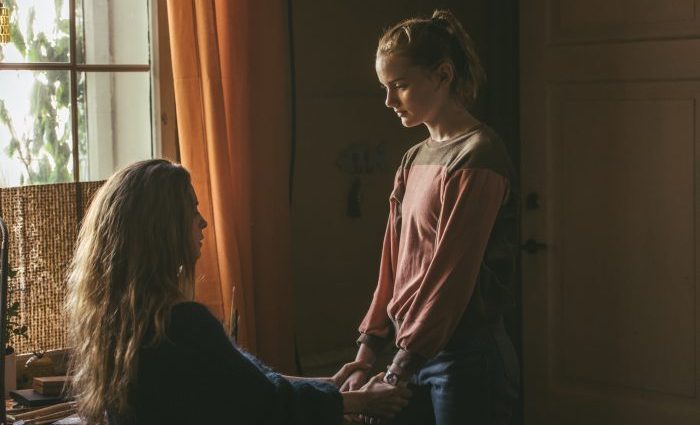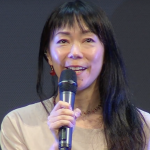Director: Camilla Strøm Henriksen
The darkly ironic title of Norwegian drama Phoenix is a cliché employed by unstable mother Astrid (Maria Bonnevie) as she envisions an upward trajectory to follow her current emotional slump. But as the sombre story of Camilla Strøm Henriksen’s compassionate feature debut quickly demonstrates, life has a callous way of derailing whatever predetermined narratives and biopic-worthy success stories we have laid out for ourselves.
In Astrid’s case, the biggest obstacle between the life she leads now and the one she imagines for herself might be her own lack of motivation. Though she briefly perks up at the thought of an upcoming job interview, Astrid’s depression keeps her largely bedridden, leaving her teenage daughter Jill (Ylva Bjørkaas Thedin) to wonder if Astrid even has the drive and energy to make her appointment.
Preparing Astrid for her interview proves a frustrating and thankless task, as Jill’s support is met with continuous resistance from her self-involved and self-destructive mother. All the while, Astrid’s neglect forces Jill to assume the role of adult in the household, caring for both herself and her younger brother Bo (Casper Falck-Løvås) in an increasingly tense environment.
A potential refuge from Jill’s stressful domestic situation takes the form of an impending visit from her father Nils (Sverrir Gudnason) for her fourteenth birthday. But when tragedy threatens to spoil these plans, Jill chooses to keep a shocking discovery to herself in order to maintain the illusion of a happy, well-functioning family.

Compared to the dimly lit of interiors of Astrid’s home, Nils’ trendy, clean abode is a deceptively palatable vision of what life might’ve been like for Jill and Bo under the care of their father. On her special day, the self-sufficient Jill can finally take a break from her role as acting parent and allow herself to be spoiled and pampered like the child she is. Nonetheless, the perks and pleasures of her day with dad carry an eerie undercurrent, as Jill’s guilt and anxiety impede her attempts to live in the moment.
The psychological toll of Jill’s dark secret is evoked in part through a series of creepy and fantastical images, but ultimately, the FX-driven fairy tale sequences prove more distracting than meaningful. Looking beyond the supernatural gimmickry, however, Phoenix finds subtler, more compelling ways of channelling Jill’s apprehension, dread, and emotional remove in the festivities of her day. In its own way, Jill and Bo’s reunion with their father is a fantasy in itself, born of Jill’s idealistic image of Nils and her denial of a grim reality that awaits back home.
All the while, Ylva Bjørkaas Thedin’s hardened yet vulnerable performance and Henriksen’s sure-handed direction keep us locked into the protagonist’s lonely mindset. In moments of wordless contemplation, Phoenix remains thoughtfully attuned to Jill’s private unease. And when the moody silence is broken, Henriksen’s script astutely illustrates the messy complexities of Jill’s dualistic family life through tensely inhibited conversation.
Whether struggling to get her mother to an interview or simply trying to have a happy birthday, Jill spends almost the entirety of the film clinging to preconceived plans that can only end in disillusionment. But while control may only be a fantasy for the young lead, Henriksen’s keen sense of craftsmanship ensures that Phoenix itself is a scheme that goes off with few hitches.





